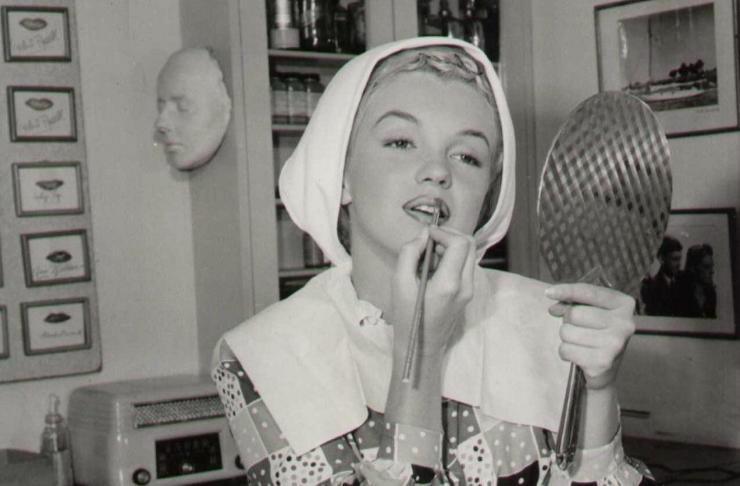
I have this Tumblr account, and I rarely use it, mostly because the interface on the site gives me a particular pain in the thinking part of my head. It is terrible. And yet I find myself wandering over there periodically when The Shit Is Going Down, because I like to be tuned in to The Shit’s progress.
Of late there has been some productive (and not-so-productive) conversation about space, and safe space, and space where marginalized folks are the focus, and space that is sort of confusing in its purpose. At any rate, I posted original content over there, and I invite you to go read it. The post is called Four Deathfat Realities (Out of uncountable variant possibilities) and it is about listening. Of course, it being Tumblr, I have already been instructed to lose weight, and, alternatively, that I can’t possibly be that fat. But I can! I have decided that my fatness is not unlike an iceberg, in that the majesty of its size cannot be appreciated in a mere photograph, and must be experienced first-hand in order to be fully understood.
—
A reader has pointed me at some recent quotes from Gwen Stefani on her body-maintenence routine. Shirley Manson (known best as the lead singer of Garbage, because no one but me remembers the excellent Angelfish, her prior band) interviewed Gwen Stefani for Elle UK, and the Daily Mail has a couple of excerpts about Gwen’s “grueling†five-days-a-week workout schedule and her description of keeping her figure as “a daily struggleâ€. This is hardly news—most female celebrities expend a huge amount of effort on keeping a certain size—but what caught me up was this quote:
Last week, a few of you alerted me to an article: The moments that make us fat, by CNN Senior Medical Correspondent Elizabeth Cohen. I’m certain Elizabeth Cohen is a nice lady whose intentions are only positive, and yet, this little bit of health-writing fluff has made a whole bunch of people very angry. The story takes form as a collection of scenarios—the “problems”—followed by suggestions for dealing with them—the “solutions”—in ways that, ostensibly, won’t make you fat.
Aye, Cap’n, thar be a blockquote on th’ horizon:
Think through your day, and you’ll see [the moments of fatness], as big and obvious as a hot fudge sundae sitting right in front of you. You’ve been good all day, and wham, your friends suggest you go to a buffet for dinner; or you’ve diligently worked out and wham, you end up at a cocktail party with an array of the most killer desserts ever.
[…]
The key is to accept the fact that your willpower will run out at some point, and plan strategies to get you through fattening situations. Here are the top five moments that make you fat, and what you can do to outwit them.
All right. So Cohen proceeds to list “moments” that are pretty broad, and solicits expert advice on how to respond to them, the sum total of which is “eat right and exercise.” Thank the maker someone finally wrote such an article! With Cohen covering the fat waterfront, I feel free to explore an analogous series of moments that we should watch out for—I daresay moments against which we must guard all the more vigilantly, if we are to get through life as kind and thoughtful human beings. I’ve therefore taken Elizabeth Cohen’s headings for her “moments that make us fat” and given them new context. Let’s see what happens.
I hereby present: The moments that make us body-policing assholes.
Edited to add: Comments that attack Michelle Obama or the President on broader political issues are off topic here and will be deleted. This is a discussion specific to Michelle Obama’s childhood obesity campaign, not the whole of American politics. Thank you for your compliance on this, my loves.
Edited to add, part two: Yes, my darlings, parts of this are satirical. I resent having to acknowledge this at all, so I am refusing to tell you which parts, exactly. So there.
 It sounds like some outrageous bit of satire, but this actually happened.
It sounds like some outrageous bit of satire, but this actually happened.
…[This is] an issue that can drastically alter the economic landscape of our cities and towns for generations to come. And I am obviously talking about the epidemic of childhood obesity. […] I’d like to spend a moment today really to focus on the economic impact that this issue is having on cities and towns all across America. Now, everyone in this room is worried about budget shortfalls.  I know that.  All of you are making wrenching tradeoffs and painful cuts just to stay afloat.  I know that’s what’s going on.  And I know that the last thing you need during times like these is a new issue on your plates. But all of you here know something else, and that is this isn’t a new issue at all.  You all know better than anyone that childhood obesity is already affecting your communities.  It’s already weighing down your budgets.  It’s already hampering economic growth.
It goes on like that for quite awhile, as Michelle Obama outlines all the myriad ways in which the existence of fat children is contributing to unemployment and hurting our military readiness, among other things. Frankly I am disappointed that she does not also manage to pin rising oil prices and the recent increase in powerful earthquakes on fat kids too, but I suppose there are limits.
Fatworld was released by Persuasive Games waaaaay back in 2007, and funded by the US Corporation for Public Broadcasting—better known to you and me as PBS. There was some brief conversation about it in the fat blogosphere at the time, so when I ran across it again recently, entirely by accident, it was not unfamiliar to me. This time, however, I was seized with the idiotic urge to actually download and play it, as I did not recall any of the prior critics doing so. (If I’m wrong on this, please add links in comments.)
The game’s stated purpose is to explore “the politics of nutritionâ€, which is a sound concept. The description argues that Fatworld will “ …demonstrate the complex, interwoven relationships between nutrition and factors like budgets, the physical world, subsidies, and regulations.†Hey, I’m on board so far! These are issues we don’t discuss enough!
Blockquote my heart:
…[Most public health programs] assume that our obesity crisis is caused solely by lack of self-control: if only everyone would choose to eat right and exercise, the problem would go away. But our culture and environment are actually structured to discourage healthy habits. Refined sugars, trans-fats, and preservatives pervade supermarket foods. Packaged foods make our overworked lives more convenient at the hidden cost of poor nutrition. Our hyper-consumerist, debt-driven culture impels us to work more, both pushing us toward high-fat fast food convenient and appealing and structuring our lives so we don’t think we can make any time for exercise.
I know a great many people have chosen not to attend PAX East this year, owing to recent events (i.e. because dickwolves), for a number of personal reasons. Some feel as though the space will be unavoidably anxiety-inducing. Some feel as though the event is now complicit in upholding cultural forces that they abhor. For some it’s a matter of not wanting to give money to an organization with which they have deep political and ethical rifts; for some it’s a matter of not wanting to be associated with certain other people that may be present. In most cases, I’d wager, it’s a combination of these factors, and maybe some others too.
All of these reasons are valid, and other reasons I haven’t even thought of are valid. No one should feel compelled to participate in a space or an event with which they are uncomfortable. Period.
I, however, am going. And I’ll tell you why.
Quelle suprise, y’all: it seems eating disorders are more common amongst teenagers than we thought, according to a new study published on Monday in the Archives of General Psychiatry.
There are a few factors that make this study instructive, besides the increased rates themselves. First, the study found that boys and girls are equally at risk of developing anorexia, though girls still lead in bulimia and binge eating. Second, the study found that eating disorders are strongly associated with suicidal ideation, and with social isolation and “disconnection.” Third, the median—the median!—age for the onset of an eating disorder is twelve. Twelve. Years old.
Release the blockquotes!
“The prevalence of these disorders is higher than previously expected in this age range, and the patterns of [co-existing illnesses], role impairment and suicidality indicate that eating disorders represent a major public health concern,” the researchers wrote. (Source)
The trillingly-named “eating disorder not otherwise specified,” otherwise known as EDNOS, is also markedly more popular than previously thought, moreso than any of the disorders with real names.
Many teens had behaviors that mimic eating disorders. This means they may have serious eating behaviors, but their symptoms do not meet all the criteria to fit the diagnosis for anorexia or bulimia as outlined in the Diagnostic and Statistical Manual of Mental Disorders, a manual for mental health disorders. This study found 0.8% of the participants had symptoms that came close to anorexia and 2.5% had symptoms resembling binge eating disorder. (Source)
You know who falls into this commitment-phobic EDNOS category? Among others, this category comprises many of the fat kids with EDs. Because willfully starving yourself is not anorexia unless you can get below 85% of the expected weight for your age and height, and have ceased to menstruate, according to the DSM.
First: I owe this blog a deep reading of the video for Lady Gaga’s “Born This Way,” I am aware. I am presently working on a Gaga-related essay (two, in fact) for a different project this week—one that actually has a deadline—but “Born This Way” is going to happen, rest assured, and I shall address both the lyrical problems and the many Madonna homages. I will tease with this: if you still believe the Madonna influence on Gaga’s performance is not fully self-aware, then I hope to make you think about it in a different way. Madonna’s greatest talent was not her so-called originality, but in knowing where best to borrow, or “steal”.
Second: A friend linked this on my Facebook wall today, and I was all, “Why the fuck didn’t I know this lady existed until now?” Megan Tonjes is a singer/songwriter with a healthy following on YouTube, where she posts videos featuring both original music and pretty damn interesting cover versions, and she is also the brains behind Project Lifesize. Megan was on The Ellen Show last month, even, where she talked about some of the hateful comments she’s gotten on YouTube—bastion of love and acceptance that it is—for daring to be fat and incredibly talented. Also really really good-looking. Anyway:
And if I may combine the first two topics into one, Megan has posted a mashup of “Born This Way” and “Express Yourself” and, um, Taylor Swift’s “You Belong With Me”, which is about the only way I will listen to Taylor Swift. Take a listen.
Finally: I shall be wandering around with my radical-ladyness at PAX East this weekend. If you are also going to be in attendance and would like to say hi, follow me on Twitter (advance apologies to my Twitter followers who don’t give a crap about PAX; it’ll all be over on Sunday!)Â or just keep an eye out for my fat ass, which may even be ensconced in ruffles to facilitate recognition. PROTIP: Hang out in the classic console free play area long enough and I can guarantee you will see me, probably trying to remember which Mega Man was the good one.
Last summer, ABC Family ran a little show with a very big heart, and that show was Huge. My newer readers may not be familiar with this series, as ABC Family’s promotion of it betrayed a total lack of understanding about what made the show great, and once it was over, the network declined to renew it for a second season, leaving us with a cliffhanger of tragic proportions, rivaled only by the gone-too-soon fate of My So-Called Life.
The similarity is especially frustrating given that Huge was the product of a collaboration between My So-Called Life creator Winnie Holzman and her daughter, the clever, personable, and maaaad smart Savannah Dooley. I wrote incredibly wordy and effusive recaps of Huge at my former blog* and later interviewed Miz Dooley herself to talk more about the process of bringing such a fat show to the small screen. In short: I had feelings about this show.
Huge came out on DVD a couple weeks ago, and watching it the second time around has really driven home the fact that it was such a radical departure from the standard fare on TV these days, not just in its treatment of fats but in how it approached gender identity, varying forms of queerness, and marginalization. It’s one of very few shows not only to take a sympathetic position toward outsiders, but to do so from the outsiders’ own perspective. Rather than assuming one universal Fat ExperienceTM, Huge chose to portray a diversity of fat people, with a diversity of relationships with their bodies. It was not merely refreshing but fucking magical. I mean, there’s a Nikki Blonsky striptease within the first four minutes of the very first episode:
How can you not love that?
The full series is viewable on Hulu, if you missed it the first time around, but I do recommend y’all consider buying the DVDs as well. I’ve yet to listen to the audio commentaries but as Savannah is damned hilarious I expect they’ll be worth the price of admission on their own.
So there you go: the best series of 2010 you probably didn’t watch. Go remedy that now.
—
* You can still read the original recaps and comment threads over there, but keep in mind that I am no longer approving comments on Fatshionista.com, which currently survives only for archival purposes.
Hello friends! My silence of the past week is owing to my having been in San Francisco, tagging along whilst my husband covered the Game Developers Conference. I did many things and saw many sights and visited just about every museum and art gallery in the whole of downtown and had a grand time. I also learned many things, like MUNI buses will SPEED UP if you are in the street in front of them, and that Alcatraz is at the top of a thirteen-story hill, and they really work hard to terrify you with this information on the ferry ride over. I fell in love with the work of a new-to-me dead artist, Leonor Fini, and quite by accident wandered into an exhibition by Song Dong at the Yerba Buena Center for the Arts where I had my mind blown clean out of my head (and where I blurrily participated). I also ate the most delicious pumpkin curry of my whole damn life, and I even had a bit of serendipitous luck when a reader recognized me on the street and we got to have lunch together (Hi Lyndsey!).
All in all, it was a delicious trip and I think San Francisco and I make very good friends, though I am happy to be back home in Boston. Or rather I will be, once the jet lag wears off.
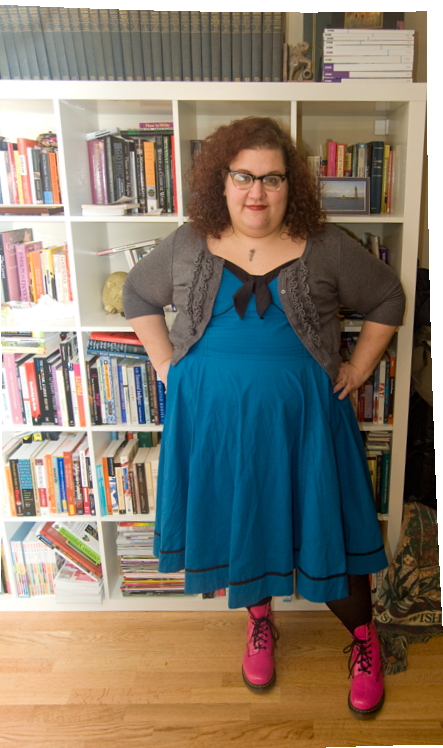 Longtime readers know that for a couple of years I made frequent photo posts about my outfits, some on this blog, but more regularly on the Fatshionista LiveJournal community where I used to be a maintainer. Lately, my long-dormant outfit-picture urge has been rising again watching all the outfits go by on the Fa(t)shion February Tumblr feed.
Longtime readers know that for a couple of years I made frequent photo posts about my outfits, some on this blog, but more regularly on the Fatshionista LiveJournal community where I used to be a maintainer. Lately, my long-dormant outfit-picture urge has been rising again watching all the outfits go by on the Fa(t)shion February Tumblr feed.
As Marianne at The Rotund has also observed this week, visibility is primary when it comes to taking these pictures of ourselves and putting them out there. We do not see our bodies (our fat bodies, our otherwise-marginalized bodies) reflected in culture, in culture and media, or if we do we are without heads or identities, without agency, without ownership—a strangely shaped approximation of a person, a pile of vaguely anthropomorphic flesh. People who weigh what I weigh are supposed to be bedridden, or if not bedridden then unable to walk more than fifteen feet without needing to stop and gasp for air, or if not unable to walk more than fifteen feet then only able to do so while suffering pain in the knees that will surely blow out from under me at any moment, or if not with destroyed knees then only with vague discomfort even if it stems not from physical circumstances but from feeling the penetrating gaze of nearly everyone who sees me. The gaze is there because I am fat and I fail to follow the rules, fail to avoid attention, fail to be uncomfortable, fail to be silent and invisible.




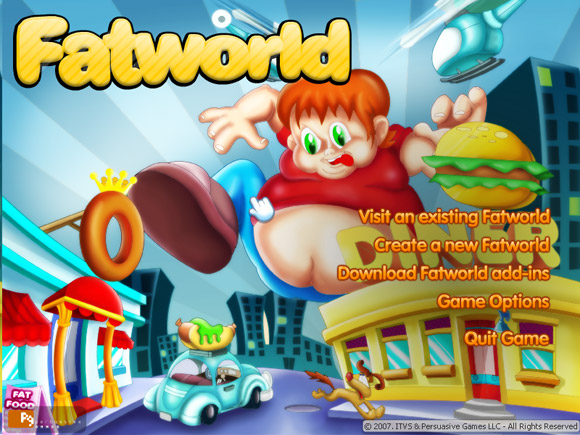
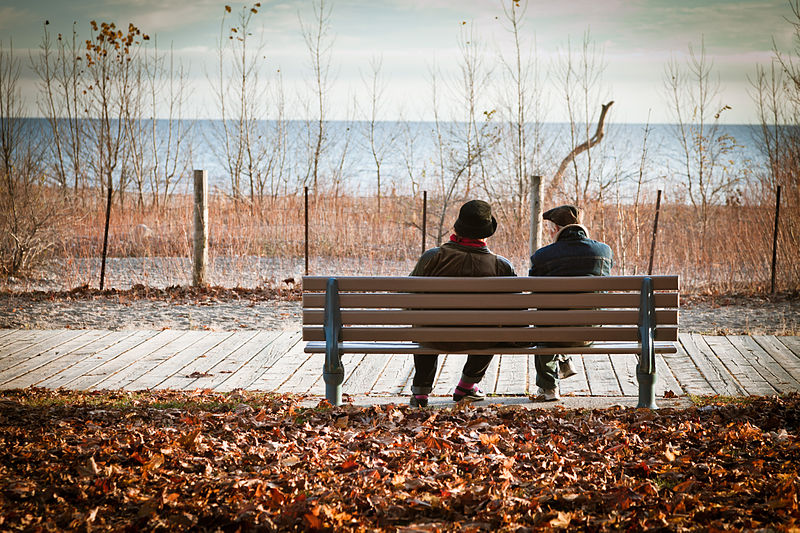


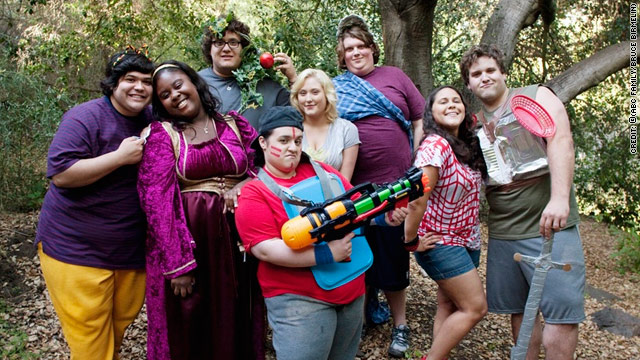


 Two Whole Cakes is a blog written by
Two Whole Cakes is a blog written by 

